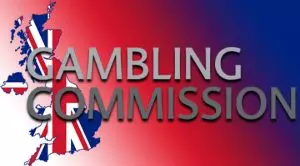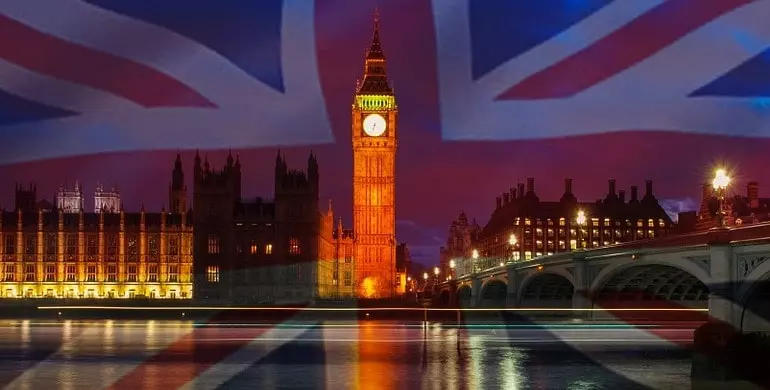 The UK Gambling Commission (UKGC) remains committed to its strategy to reduce gambling-related harm and guarantee that local customers are well protected against possible negative consequences of gambling.
The UK Gambling Commission (UKGC) remains committed to its strategy to reduce gambling-related harm and guarantee that local customers are well protected against possible negative consequences of gambling.
It was only last week when the regulatory body revealed that it has imposed s number of significant penalty packages totalling £4.5 million to companies which operate in the online gambling sector. The move was taken as part of the widespread regulatory actions of the Commission against companies which failed to make sure they put in place effective measures preventing money laundering and keeping customers well-protected against possible negative consequences from gambling.

UKGC Continues Widespread Regulatory Action with Massive Penalty Packages
 As reported by Casino Guardian at the time, the penalty packages followed an ongoing investigation into the online casino sector in the UK. A total of 123 online operators were subject to assessment, with the Commission requiring from 45 of them to submit an action plan aimed at raising standards.
As reported by Casino Guardian at the time, the penalty packages followed an ongoing investigation into the online casino sector in the UK. A total of 123 online operators were subject to assessment, with the Commission requiring from 45 of them to submit an action plan aimed at raising standards.
Since the beginning of the UKGC investigation in the industry, five companies have decided to surrender their operating licenses. At the time, they are unable to transact with British customers.
The latest regulatory action against online gambling operators in the UK ended up with penalty packages being imposed on four companies, including InTouch Games Limited (£2.2 million), Betit Operations Limited (£1.4 million), MT Secure Trade (£700,000) and BestBet (£230,972). All penalty packages are associated with the four businesses’ failures to ensure effective safety measure to prevent money laundering and to provide maximum protection against gambling-related harm to their customers.
Only half a year ago, in November 2018, the Commission also imposed large monetary fines on a number of gambling businesses which have failed to address money laundering and problem gambling. The overall amount of the penalty packages at the time totalled almost £14 million and was imposed on Daub Alderney (£7.1 million), Casumo (£5.85 million) and Videoslots Limited (£1 million).
As the UKGC Executive Director Richard Watson explained at the time when the financial penalties were imposed, the work of the Commission as a main gambling regulator in the UK would not stop with these measures. The watchdog would continue to set and enforce standards as part of its new National Strategy to Reduce Gambling Harms in order to make sure that the sector remains compliant to customer protection rules.

Gambling Commission Announces New National Strategy to Reduce Gambling-Related Harm
 On April 25th, the major gambling regulatory body in the UK rolled out its latest three-year National Strategy to Reduce Gambling Harms. As revealed by the UKGC, the difference this time is that regulators, charity organisations, health bodies and gambling operators will join forces to effectively reduce problem gambling together.
On April 25th, the major gambling regulatory body in the UK rolled out its latest three-year National Strategy to Reduce Gambling Harms. As revealed by the UKGC, the difference this time is that regulators, charity organisations, health bodies and gambling operators will join forces to effectively reduce problem gambling together.
The regulator has called for all the above-mentioned parties to combine efforts in order to deliver two areas of strategic priority. The first one is associated with prevention and education, while the other one is focused on treatment and support.
The UKGC, of course, will remain greatly engaged in the regulation and law enforcement in order to make the local gambling industry safer and fairer. According to the Chairman of the Gambling Commission, Mr William Moyes, the new strategy will provide both the regulator and its partners with the chance to see faster progress in its mission to reduce the possible negative consequences for players. He reminded that the UK regulators need a better awareness of the possible negative consequences of gambling in order to provide better protection to society members.
The new strategy will also be supported by Public Health England, which is to be conducting the first-ever review of evidence regarding the public health harms related to gambling in England. This special review would be focused primarily at the range and scale of gambling-related harm inflicted on local communities and will identify the impact which gambling has on Brits’ physical and mental health and wellbeing. Moreover, a complimentary review of the policies’ effectiveness has been commissioned by the National Institute of Health Research, with the latter set to provide full evidence review in the spring of 2020.
Shortly before the new UKGC strategy release, the gambling watchdog announced that the Responsible Gambling Strategy Board (RGSB), which has been the Commission’s independent advisor, had been renamed as the Advisory Board for Safer Gambling (ABSG). The move has been taken as part of a renewed focus on customer safety and gambling-related harm prevention.

Problem Gambling Needs to Be Properly Addressed by Regulators
 According to estimates provided by the Gambling Commission, there are currently about 430,000 people who suffer from gambling-related harm.
According to estimates provided by the Gambling Commission, there are currently about 430,000 people who suffer from gambling-related harm.
The National Health Service (NHS) has shared there has been increasing evidence of a link between gambling addiction and various mental health issues such as depression and stress. GambleAware, the largest charity which is aimed at helping problem gamblers has also described gambling addiction as a serious public health issue in the UK, with about 2 million adults being affected by some level of gambling-related harm.
Previously, the charity organisation has called for more commitment by the gambling industry to reduce advertising, as well as to boost GambleAware’s funding used for research, education, treatment and prevention of problem gambling. Mims Davies, the Minister for Sport and Civil Society, also supported the request, saying that keeping gambling-related harm away from people should the among the top priorities of every gambling company.
As revealed above, much of the Gambling Commission’s new strategy is focused on research on the effects which gambling has on people’s physical and mental health. In addition, the UKGC is to establish a National Research Centre which is to be primarily focused on gathering thorough information about gambling participation and gambling addiction rates. A national database is already being built.
- Author


